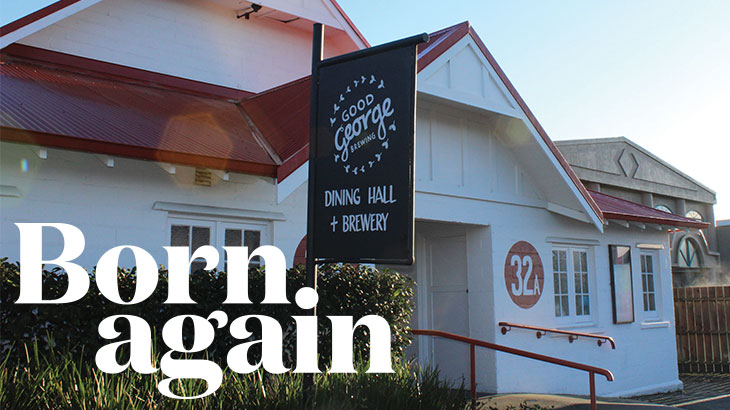Born again
Half of New Zealanders say they have no religion, according to the 2018 census, up from 30 percent in 2001, and 10 percent in 1951. A survey by the Presbyterian Church Property Trustees found that since the middle of last century its average parish shrank from around 400 people to 74. Since 1981 parish numbers have dwindled by around 100 to fewer than 400.
Seismic requirements have ramped up costs. Presbyterians earthquake-strengthened 27 churches in the five years to July 2017. It sold 60 and demolished nine, noting in a 2018 report “a noticeable increase in the number of buildings being demolished or sold because parishes are faced with high costs for earthquake strengthening”.
Land and buildings, also including schools and other property, make up the bulk of assets held by major Christian denominations – from 64 percent for Methodists up to 89 percent for Brethren, Charities Commission data shows.
“Religious organisations still hold billions of dollars of real estate,” says Ryan Johnson, Bayleys’ national commercial and industrial director.
“This places them among the country’s largest holders of property and they are a significant source of stock entering the commercial property market.
“Decades of societal changes, and rising costs, have seen many churches become surplus to requirements. The figures suggest there’s no end in sight for religious buildings coming onto the market.
“The reuse of religious real estate as shops, bars, offices, boutique accommodation or event centres may seem incongruous or surprising, but it’s generally underpinned by rock-solid commercial property fundamentals,” says Johnson.
“Churches are typically sited in highly-accessible, prominent locations in town or suburban centres. They offer significant open-plan floorspace, often supplemented with halls and former clergical residences, considerable land and on-site parking.”
Johnson says the earthquake-strengthening challenges that often prompt disposal are also a key consideration for buyers. “Developers and investors need to carefully weigh these costs, along with other costs of redeveloping and repurposing a property, against the returns that can be generated from new commercial uses.”
FORMER METHODIST CHURCH, HIGH STREET, MOTUEKA
After opening its doors to congregations in 1921 when Methodism was at its peak comprising 10 percent of New Zealand’s population, this prominent town-centre building served parishioners for decades until declining numbers saw it closed and deconsecrated. It has since passed through incarnations as a night club, restaurant and retail premises.
The property seemed heaven-sent when it was occupied at short notice by the local Bayleys team last year after their office across the road was ravaged by fire.
Located at 208 High Street, the church and associated buildings offer 570 square metres of floor space on a 1,087-square metre, commercially-zoned freehold site. The redeveloped property included a commercial kitchen and private courtyard. Bought by its current owners for $750,000 in 2018, it has a rating valuation of $1,020,000.
SAINT GEORGE’S ANGLICAN CHURCH, FRANKTON, HAMILTON
When Good George was seeking premises for its flagship craft brewery, the former Saint George’s Anglican Church ticked their boxes for character and location.
The original 1960s building at 32A Somerset Street was destroyed by fire in 1971. A smaller church replaced it amid a growing industrial and manufacturing precinct. It closed in 2000 and was sold to a housing group.
Good George bought the 507-square metre building on a 1,238-square metre freehold site in 2011 for $383,700. Its brew house took up 150 square metres, with remaining space used for hospitality. The brewery later occupied two adjacent warehouses covering 1,400 square metres.
Good George co-founder Darrel Hadley said people thought the property was a “crazy” choice, particularly its location away from evening crowds. “But there’s a lot of hidden businesses here that employ a large number of staff. The church was the perfect mix of location, character and potential.”
SALVATION ARMY WORSHIP AND COMMUNITY CENTRE, MOUNT WELLINGTON, AUCKLAND
Another religious organisation, the Salvation Army, bought the Destiny Church complex when it was sold to allow Destiny to develop a new “City of God” in Wiri.
The Salvation Army funded the purchase of the complex at 18 Allright Place, Mount Wellington, for an undisclosed sum in 2013, by selling another property on Queen Street. At the time, the 1980s-era complex which previously housed a Quik Stik factory, had a rateable value of $4.9 million.
The 4,400-square metre building on 8,000 square metres of industrial-zoned land featured an air-conditioned acoustic auditorium, a modern glass-partitioned office and administration area and a cafe. The Salvation Army still uses it for worship, as well as a family store, early childhood education centre and public cafe.
Its rating valuation is now $12 million.
Read more market insights from Total Property
Subscribe to receive the latest commercial news and insights from Bayleys Total Property
